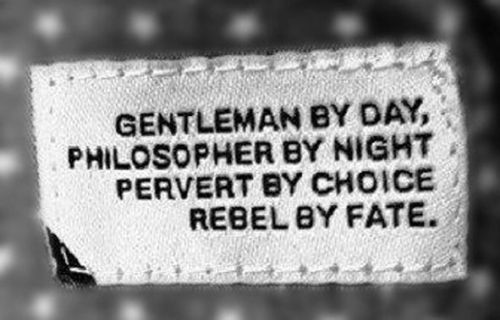
Rosemary's Baby is a 1968 American horror/thriller film written and directed by Roman Polanski, based on the bestselling 1967 novel of the same name by Ira Levin. The film received mostly positive reviews and earned numerous nominations and awards. The film has led to numerous references in film, television, music and other media. The film was positioned 9th in the AFI's 100 Years…100 Thrills list.
The story focuses on Rosemary Woodhouse, a bright but somewhat naïve young housewife, and her struggling actor husband Guy, as they move into the Bramford, a New York City apartment building with a history of unsavory tenants and mysterious events. Their neighbors are an elderly and slightly absurd couple, Minnie and Roman Castevet, who tend to be meddlesome but seem harmless. Guy becomes unusually close to the pair while Rosemary tries to maintain a distance from them. Guy lands a role in a play when the actor originally cast suddenly and inexplicably goes blind. Soon afterwards he suggests that he and Rosemary have the child they had planned. On the night they plan to try to conceive, Minnie brings them individual ramekins of chocolate mousse, but Rosemary finds hers has a chalky undertaste and surreptitiously throws it away after a few tastes. Shortly afterward, she has a dizzy spell and passes out. She experiences what she perceives to be a strange dream in which she is raped by a demonic presence.
A few weeks later, Rosemary learns she is pregnant, and is due on June 28,1966 (6/66). She plans to be treated by Dr. Hill, recommended by her friend Elise, but the Castevets insist she see their good friend, famed obstetrician Dr. Sapirstein. For the first three months of her pregnancy, Rosemary suffers severe abdominal pains, loses weight, and craves raw meat and chicken liver. The doctor insists the pain will subside soon and assures her she has nothing to worry about. At the Castavets' New Year's Eve party, Roman raises a toast to "1966 - the Year One".
When her old friend Hutch sees Rosemary's wan appearance, he is disturbed enough to do some research, and he plans to share his findings with her but falls into a coma before they can meet. He subsequently dies but before he does instructs his friend Grace Cardiff to deliver the book about witchcraft on his desk to Rosemary. Photographs, passages in the text he marked, and the cryptic message "the name is an anagram" lead the young mother-to-be to realize Roman Castevet is really Steven Marcato, the son of a former resident of the Bramford who was accused of worshiping Satan. She suspects her neighbors are part of a cult with sinister designs for her baby, and Guy is cooperating with them in exchange for their help in advancing his career. She deduces that Dr. Saperstein is also a part of the conspiracy when his front desk clerk comments that he often smells of tannis root - a fungus called "Devil's Pepper" - which Rosemary also smells of (a good luck charm given to her by Minnie is full of tannis root).
An increasingly disturbed Rosemary shares her fears and suspicions with Dr. Hill, who, assuming she is suffering from a hormonal imbalance, calls Dr. Sapirstein and Guy. The two men bring her home, at which point Rosemary goes into labor. When she awakens following the delivery of her baby she is told the child died shortly after birth. However, when she hears an infant's cries somewhere in the building, she suspects he still is alive. In the hall closet, she discovers a secret door leading into the Castevet apartment, where the coven meets, and finds the congregation gathered, worshipping her newborn son, the spawn of Satan. The coven urges Rosemary to become a mother to her son, Adrian. The film ends with her adjusting her son's blankets and gently rocking his cradle.

In Rosemary's Baby: A Retrospective, a featurette on the DVD release of the film, screenwriter/director Roman Polanski, Paramount Pictures executive Robert Evans, and production designer Richard Sylbert reminisce at length about the production. Evans recalled William Castle brought him the galley proofs of the book and asked him to purchase the film rights even before Random House released the publication. The studio head recognized the commercial potential of the project and agreed with the stipulation that Castle, who had a reputation for low-budget horror films, could produce but not direct the film adaptation.
Evans admired Polanski's European films and hoped he could convince him to make his American debut with Rosemary's Baby. He knew the director was a ski buff who was anxious to make a film with the sport as its basis, so he sent him the script for Downhill Racer with the galleys for Rosemary. Polanski read the book non-stop through the night and called Evans the following morning to tell him he thought it was the more interesting project, and would like the opportunity to write as well as direct it.
Polanski envisioned Rosemary as a robust, full-figured, girl-next-door type, and he wanted Tuesday Weld or his own wife Sharon Tate for the role. Since the book had not reached bestseller status yet, Evans was unsure the title alone would guarantee an audience for the film, and he felt a bigger name was needed for the lead. With only a supporting role in Guns at Batasi and the not-yet-released A Dandy in Aspic as her only feature film credits, Mia Farrow had an unproven box office track record, but her role as Allison MacKenzie in the popular television series Peyton Place and her unexpected marriage to Frank Sinatra had made her a household name. Despite her waif-like appearance, Polanski agreed to cast her. Her acceptance incensed Sinatra, who had demanded she forego her career when they wed, and he served her divorce papers via a corporate lawyer, in front of the cast and crew midway through filming. In an effort to salvage her relationship, Farrow asked Evans to release her from her contract, but he persuaded her to remain with the project after showing her an hour-long rough cut and assuring her she would receive an Academy Award nomination for her performance.
Robert Redford was the first choice for the role of Guy Woodhouse, but he turned down the offer. Jack Nicholson was considered briefly before Polanski suggested John Cassavetes.
Sylbert was a good friend of Garson Kanin, who was married to Ruth Gordon, and he suggested her for the role of Minnie Castevet. He also suggested The Dakota, an Upper West Side apartment building known for its show business tenants, be used for the Bramford. Its hallways were not as worn and dark as Polanski wanted, but when the building's owners would not allow interior filming, that became a moot point and it was used for exterior shots only.
Polanski wanted to cast Hollywood old-timers as the coven members but did not know any by name. He drew sketches of how he envisioned each character, and they were used to fill the roles. In every instance, the actor cast strongly resembled Polanski's drawing. These included Ralph Bellamy, Patsy Kelly, Elisha Cook, Jr., Phil Leeds, and Hope Summers.
When Rosemary calls Donald Baumgart, the actor who goes blind and is replaced by Guy, the voice heard is that of actor Tony Curtis. Mia Farrow, who had not been told who would be reading Baumgart's lines, recognized the voice but could not place it. The slight confusion she displays throughout the call was exactly what Polanski hoped to capture by not revealing Curtis' identity in advance.
Sydney Guilaroff designed the wig worn by Mia Farrow in the film's early scenes. It was removed to reveal the Vidal Sassoon hairdo that made headlines when Farrow cut her trademark long hair during filming of Peyton Place.
One of Mia Farrow's more emotionally charged scenes occurs in the midst of a party, when several of Rosemary's female friends lock Guy out of the kitchen as they console her in private. The scene was shot in a single day. That morning, just before the first take was filmed, a private messenger served Farrow with formal divorce papers from Frank Sinatra. As she read the documents, Farrow fell to her knees on the kitchen floor and openly wept in front of the cast and crew. Roman Polanski insisted that the day be canceled and filming be postponed until the next day, when he would start consecutively filming as many scenes as possible that did not contain Rosemary. Farrow openly would not accept this, insisting that nothing had changed. The day's filming concluded on time and without delay.
When Farrow was reluctant to film a scene that depicted a dazed and preoccupied Rosemary wandering into the middle of a Manhattan street into oncoming traffic, Polanski pointed to her pregnancy padding and reassured her, "no one's going to hit a pregnant woman".
Rosemary's Baby has a 98% "fresh" rating on the review aggregator website Rotten Tomatoes, with 46 of the 47 reviews being positive. In her review in the New York Times, Renata Adler said, "The movie - although it is pleasant - doesn't seem to work on any of its dark or powerful terms. I think this is because it is almost too extremely plausible. The quality of the young people's lives seems the quality of lives that one knows, even to the point of finding old people next door to avoid and lean on. One gets very annoyed that they don't catch on sooner."
Roger Ebert of the Chicago Sun-Times called it "a brooding, macabre film, filled with the sense of unthinkable danger. Strangely enough it also has an eerie sense of humor almost until the end. It is a creepy film and a crawly film, and a film filled with things that go bump in the night. It is very good...much more than just a suspense story; the brilliance of the film comes more from Polanski's direction, and from a series of genuinely inspired performances, than from the original story . . . The best thing that can be said about the film, I think, is that it works. Polanski has taken a most difficult situation and made it believable, right up to the end. In this sense, he even outdoes Hitchcock."
Variety stated, "Several exhilarating milestones are achieved in Rosemary's Baby, an excellent film version of Ira Levin's diabolical chiller novel. Writer-director Roman Polanski has triumphed in his first US-made pic. The film holds attention without explicit violence or gore . . . Farrow's performance is outstanding."























4 comments:
thanks, i enjoy a lot doing it .
Awesome pictures and interesting information and attractive.
Yes, the blog is very interesting and I really like.
This is a very good article, thanked the author to provide it for us!
Its my great pleasure to visit your website and to enjoy your awesome topics, I appriciate that a lot. I see that you paid much attention for those topics, as all of them make sense and are very useful.
Post a Comment